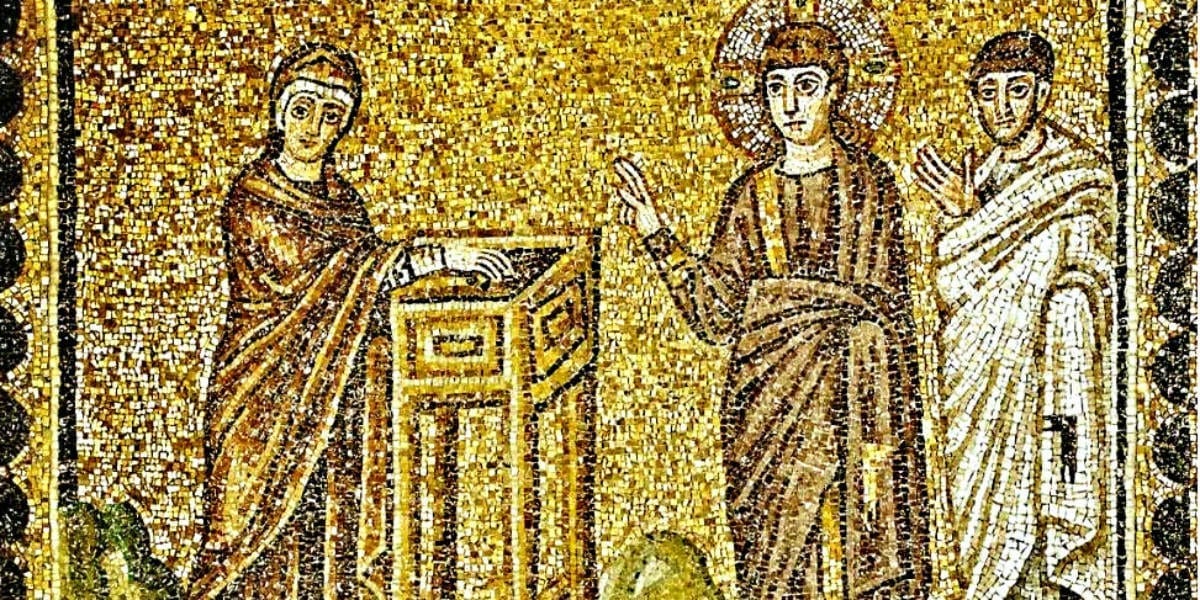Regina Caeli – Queen of Heaven, Rejoice!
The Regina Caeli, Latin for “Queen of Heaven,” is a hymn and prayer ...

Prayer, fasting, and almsgiving or mercy, the key penitential sacrifices of Lent, are here explained by one of the greatest preachers of the early Church. Saint Peter Chrysologus declares that to pray is to knock at the door, to fast is to obtain, and by almsgiving, we receive. He shows how these three aspects of Lenten sacrifice are one, and they give life to each other.
There are three things, my brethren, by which faith stands firm, devotion remains constant, and virtue endures. They are prayer, fasting and almsgiving. Prayer knocks at the door, fasting obtains, mercy receives. Prayer, mercy and fasting: these three are one, and they give life to each other.
Fasting is the soul of prayer, almsgiving is the lifeblood of fasting. Let no one try to separate them; they cannot be separated. If you have only one of them or not all together, you have nothing. So if you pray, fast; if you fast, show mercy; if you want your petition to be heard, hear the petition of others. If you do not close your ear to others you open God’s ear to yourself.
When you fast, see the fasting of others. If you want God to know that you are hungry, know that another is hungry. If you hope for mercy, show mercy. If you look for kindness, show kindness. If you want to receive, give. If you ask for yourself what you deny to others, your asking is a mockery.
Let this be the pattern for all men when they practice mercy: show mercy to others in the same way, with the same generosity, with the same promptness, as you want others to show mercy to you. Therefore, let prayer, mercy and fasting be one single plea to God on our behalf, one speech in our defense, a threefold united prayer in our favor.
Let us use fasting to make up for what we have lost by despising others. Let us offer our souls in sacrifice by means of fasting. There is nothing more pleasing that we can offer to God, as the psalmist said in prophecy: A sacrifice to God is a broken spirit; God does not despise a bruised and humbled heart.
Offer your soul to God, make him an oblation of your fasting, so that your soul may be a pure offering, a holy sacrifice, a living victim, remaining your own and at the same time made over to God. Whoever fails to give this to God will not be excused, for if you are to give him yourself you are never without the means of giving.
To make these acceptable, almsgiving must be added. Fasting bears no fruit unless it is watered by mercy. Fasting dries up when mercy dries up. Mercy is to fasting as rain is to earth. However much you may cultivate your heart, clear the soil of your nature, root out vices, sow virtues, if you do not release the springs of mercy, your fasting will bear no fruit.
When you fast, if your mercy is thin your harvest will be thin; when you fast, what you pour out in almsgiving overflows into your barn. Therefore, do not lose by saving, but gather in by scattering. Give to the poor, and you give to yourself. You will not be allowed to keep what you have refused to give to others.
This reading on almsgiving or mercy and its accompanying Lenten sacrifices is by St. Peter Chrysologus and is an excerpt from his Sermo 43: PL 52, 320, 322. It appears in the Roman Catholic Church for the Office of Readings for Tuesday of the third (3rd) week of Lent along with Exodus 32: 1-20.
For a related brief podcast, listen to Dr. Italy as he speaks of FASTING: ITS VALUE AND LIMITATIONS.
For more great Lenten resources, see the 40 DAYS OF LENT LIBRARY of the Crossroads Initiative.
No Comments